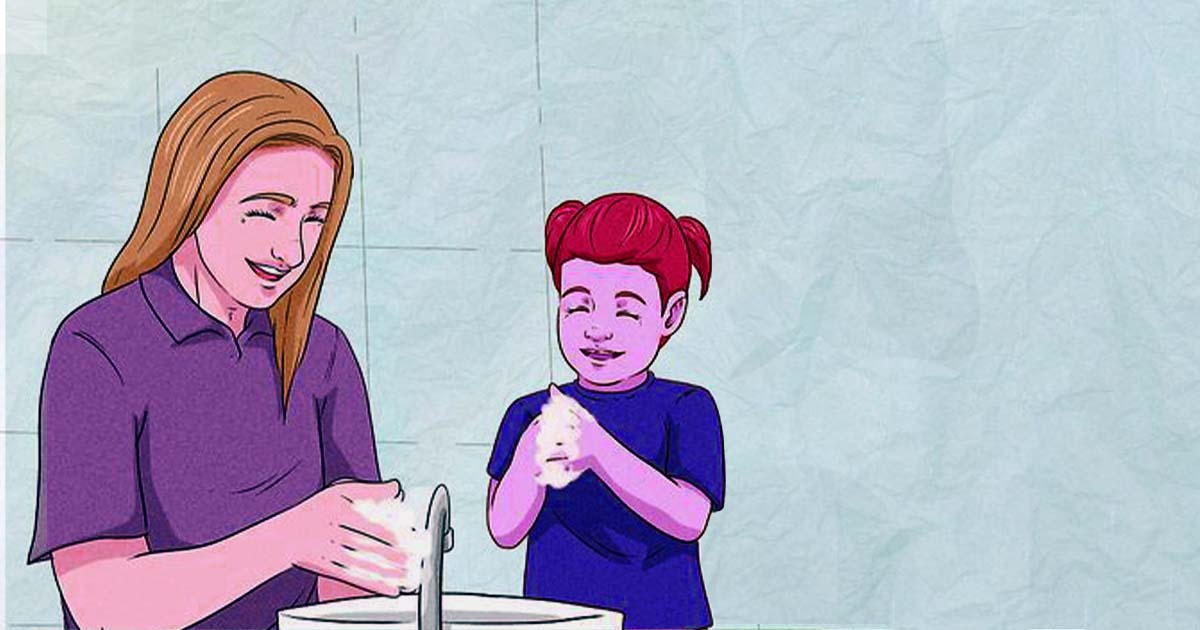Setting firm house rules for a child is crucial for establishing a stable and supportive family environment where children can grow.
Home rules create a foundation of morals upon which children base their behavior and development. They bring order, protect safety, and teach important life lessons.
This article will discuss why house rules for kids are important and provide tips for setting them up successfully.
Whether you are a first-time parent with young kids or someone who is fine-tuning the way things work in your household as they grow older; knowing why it matters to have clear expectations can make all the difference between raising successful individuals or not.
Why House Rules For A Child Are Important?
The backbone of a good environment for kids is the house rules for your child. It’s not only the directions they give but also their bursty nature that ensures safety as well as teaches essential skills.

1. Organization and Schedule
Children tend to do well in an atmosphere that is predictable and orderly. Through establishing daily routines, and house rules for a child helps kids comprehend what should be done at different times of the day.
This prepares them for later years by instilling early habits while at it providing stability which leads to the prevention of any insecurity issues.
2. Security precautions
Nothing should be taken more seriously than ensuring safety when bringing up young ones; thus making this one of the most important functions played by household regulations.
These house rules for kids may touch on aspects such as home security, outside play or even how they should interact with strangers thereby teaching them to identify potential hazards so that they can stay away from them hence promoting their physical health too.
3. Behavioral Guidance and Social Skills
One way to teach good behavior and social skills to children is by setting rules in the house for them. Such regulations foster empathy and sensitivity towards other people’s feelings when kids are expected to live with manners, respect others as well as resolve conflicts.
4. Promoting Family Values
Often times what families consider important or valuable can be seen through their household rules too; this is called reflecting on family values.
In this light, cultural morals ethics etcetera may also form part of parents’ duty to establish right from wrong in their children’s minds which guides them throughout life as they grow up making decisions about what’s acceptable behavior or not based on these teachings.
5. Teaching Responsibility and Accountability
Another reason why parents should have rules within homes is because it helps kids learn how to take responsibility for their actions.
Being responsible means that one knows that if a mess has been made then he/she must clean it up.
Finishing tasks assigned such as chores among others teaches them about being independent while sticking to time limits like curfews fosters self-reliance since one becomes aware of his needs without always relying on someone else.
A positive attitude towards house rules for a child enables parents to create an environment where all members feel appreciated, safe, and capable of assuming responsible citizenship roles at different stages in life.
Parents who prioritize establishing communication methods between themselves and their children through the use of these rules provide a foundation upon which future achievement levels will be built thus ensuring happiness for their offspring later in adulthood.
7 Common House Rules For Your Child You Can Use!
Implementing house rules for kids can be an enabling and organized way of teaching them important lessons and behavior.

These are seven common rules to consider:
1. Respect Others and Their Property
Explanation: Teach children to respect family members, guests, and their belongings by using polite language, considering others’ feelings, and asking before borrowing anything that belongs to someone else.
Example: “We treat people kindly and with respect; we use gentle hands.”
2. Clean Up After Yourself
Explanation: Encourage children to take care of their messes as well as personal items. These house rules for a child help create good habits while ensuring a neat living space for everyone.
Example: “We clean up our toys when we’re done playing with them.”
3. Follow Bedtime Routine
Explanation: Establish consistent sleep patterns through having a set bedtime routine thus promoting healthiness in children’s lives. It also sets them off on the right foot every morning.
Example: “We brush our teeth, read a story then go straight to bed.”
4. Use Kind Words And Manners
Explanation: Teach kids how important it is for them always to use kind words when talking about or listening to other individuals around This includes showing gratitude such as ‘please’ ‘thank you’and ‘excuse me’.
Example: “We say please thank you excuse me”
5. Limit Screen Time/Electronics
Explanation: Establish necessary house rules for a child regarding screen time usage to encourage physical activities among kids since they may need social interactions during such moments or even engage in family bonding more often – this balances technology with other aspects of life.
Example: “One hour of screen time after homework and chores have been completed each day”
6. Complete Homework & Chores
Explanation: Encourage responsibility by making sure that children finish doing their school work before anything else happens also let them know that partaking in various house duties teaches one how to manage his/her time better while being accountable for every action performed within the family unit.
Example: “We finish our homework before playtime and help with chores around the house”
7. Be Honest & Tell The Truth
Explanation: Teach children always to be honest at all times no matter how hard it may seem since lies will only destroy trust among individuals which might eventually lead to various ethical issues – this house rules for a child build integrity within us.
Example: “We always tell the truth even if we have done something wrong”
How to Establish House Rules For A Child?
When making house rules for a child, there should be careful planning and clear communication.

To successfully establish house rules, follow these steps:
1. Specify your priorities and values
Think about which values are important in your family like respect, honesty, responsibility or kindness.
Decide on the areas of behavior and everyday routines that need attention. This could be chores, manners, screen time or bedtime routine etc.
2. Involve the Child
Depending on their age group, let them take part in creating the rules. Younger ones may have simpler ones while older children can participate by discussing and negotiating them.
Explain why certain things must happen this way (the reason behind it). This will help them understand why they must do as instructed hence encouraging compliance.
3. Simplicity is Key
Always phrase rules positively stating what should be done instead of what shouldn’t be done i.e. say “Use gentle hands” rather than saying “Don’t hit”.
Make expectations for different situations very clear so that there is no room left for misunderstanding due to vague or ambiguous instructions/rules.
4. Put Them Down on Paper
Write out all agreed-upon regulations somewhere visible like a poster board hung up where everyone can see it every day or use whiteboard markers directly onto the fridge surface etc.
From time to time go through these with kids just to ensure that they still remember what each one means because sometimes over a period some might get forgotten if not reminded constantly but also serves as a reminder about what should always happen even when parents are not around.
5. Offer Rewards and Set Consequences
Come up with appropriate rewards and punishments depending on whether the child follows or breaks any given house rules for your child. For instance, taking away certain privileges may work best when dealing with this problem area (consequence).
Similarly acknowledge good behavior by posting positive notes next to those particular points when reviewing such lists together once again after some time has elapsed since last doing so – positive reinforcement.
By following these steps, you can establish house rules for your child that promote a positive and structured environment for your child’s growth and development. Remember that consistency, clarity, and mutual understanding are key to successful rule implementation in any household.
A Word From Mind Family
Establishing house rules for your child is not just about creating boundaries; it’s about nurturing a supportive environment where they can learn and thrive.
By setting clear expectations and boundaries, you provide structure and stability that are crucial for their development. These rules help teach them important values like respect, responsibility, and honesty, preparing them for a successful future.
Remember, the goal of house rules isn’t just compliance but also to create a home where your child feels safe, valued, and empowered to grow into responsible individuals.
Here’s to a home filled with warmth, laughter, and growth as you navigate the journey of parenting together with your child.
Frequently Asked Questions (FAQs)
Why house rules for a child are important?
House rules provide structure, safety, and teach essential life skills like responsibility and respect, preparing children for future success and fostering a positive family environment.
How to establish house rules for a child?
Establish house rules for kids by identifying family values, involving children in rule-making (based on age), keeping rules clear and positive, writing them down visibly, and implementing consistent consequences and rewards.
What are some common house rules for kids?
Common house rules include respecting others and their property, cleaning up after oneself, following bedtime routines, using kind words and manners, limiting screen time, completing homework and chores, and always being honest.














Leave a Reply